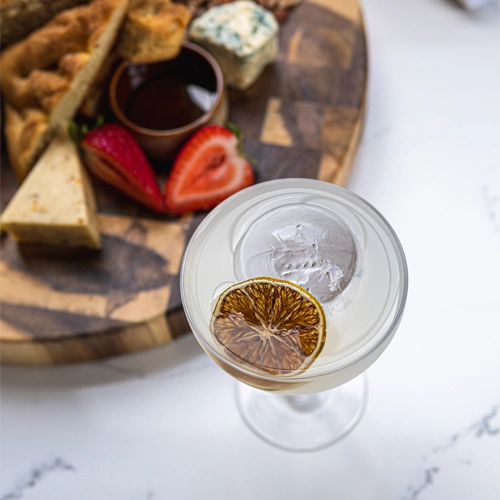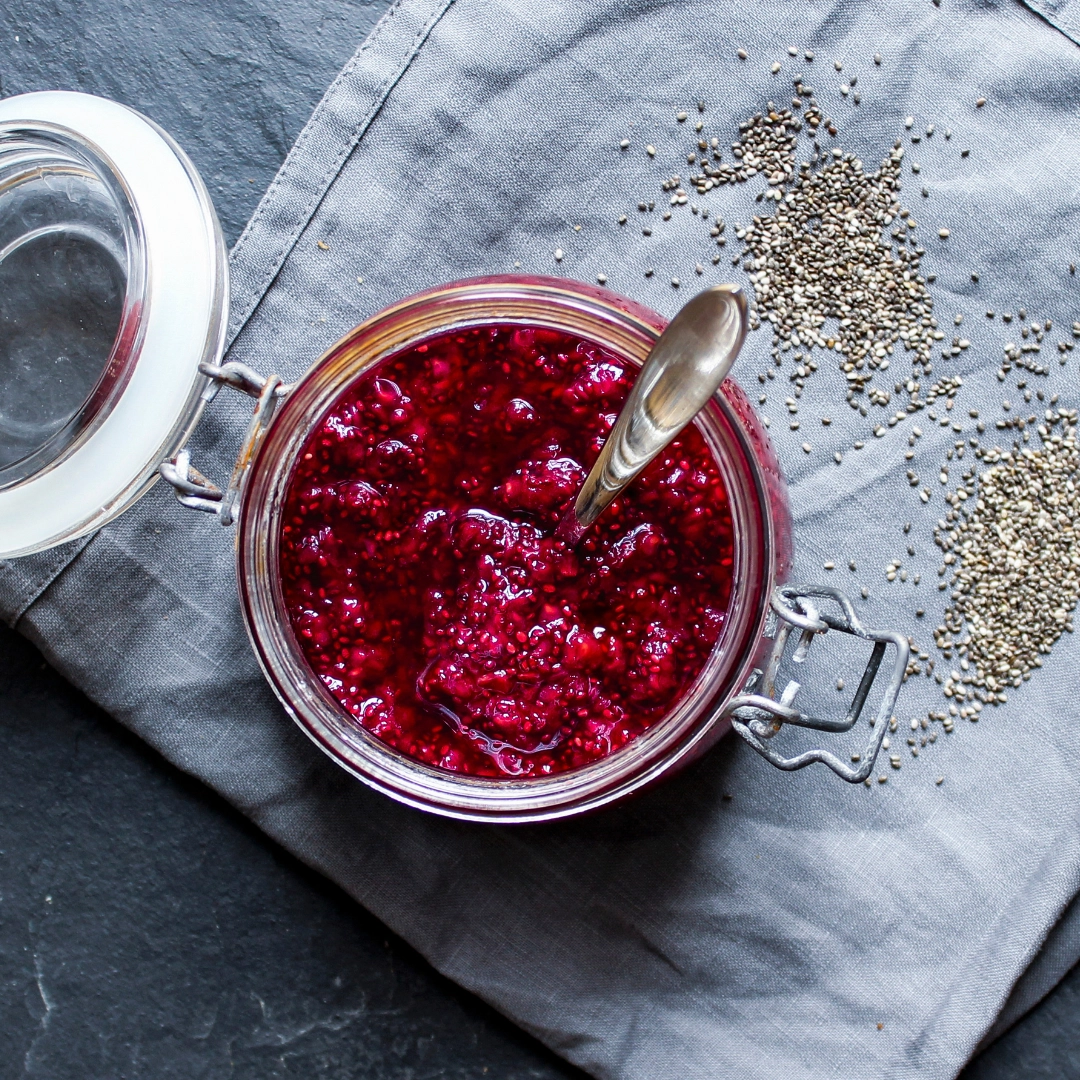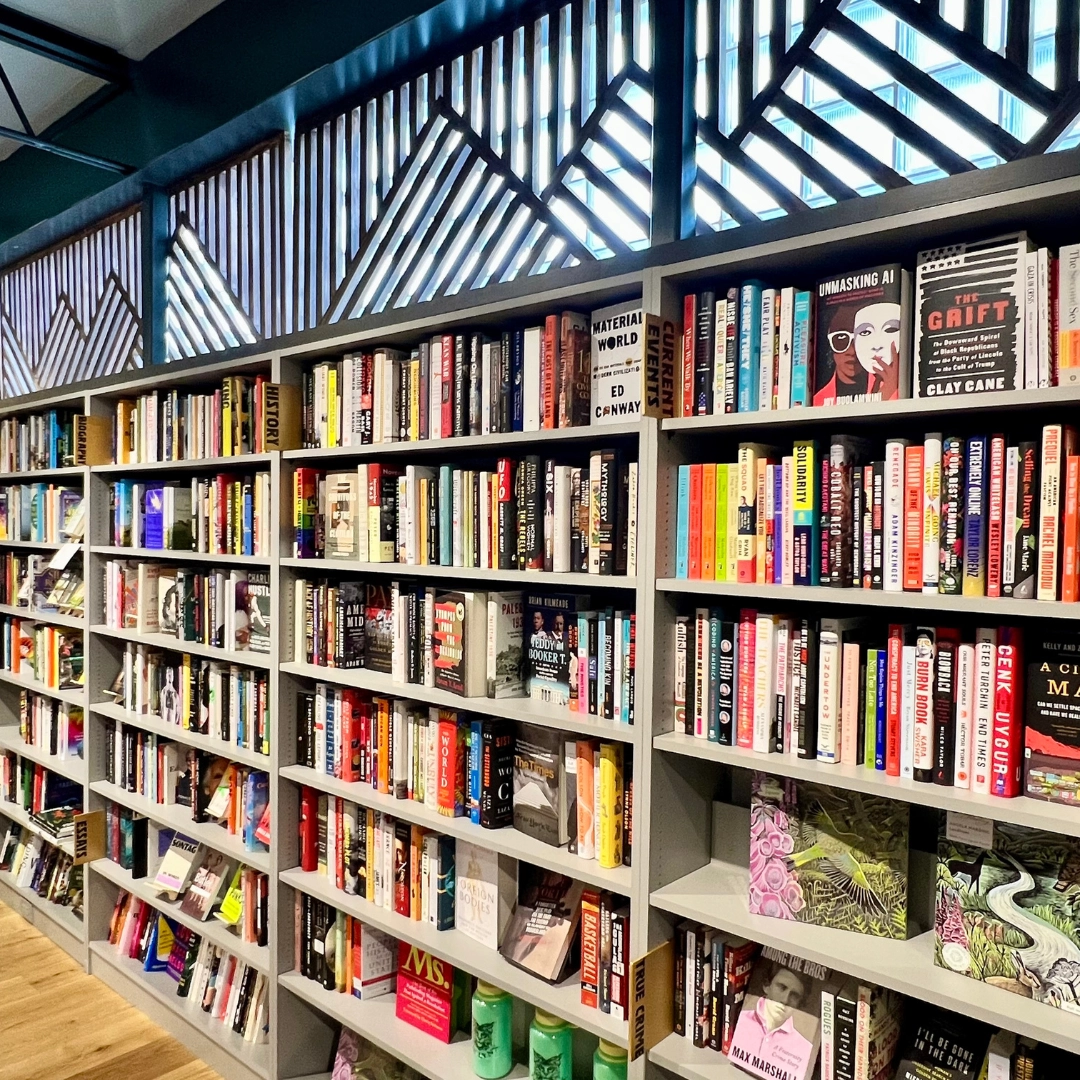by Diane Roberts | November 15, 2021
Florida’s Fiercest Females You Ought to Know
The Sunshine State ladies in politics, news and books bringing change to the state
I don’t know about you, but I’m tired of my native state always being identified with Florida Man. Sure, no one can resist reading about that nude Jacksonville guy who stole a police car and crashed it in the woods off I-10, or that guy (not nude) who threw an alligator onto the roof of a Daytona Beach bar to “teach it a lesson”—not to be confused with that guy who threw an alligator into the Wendy’s drive-thru window in Loxahatchee—and, most famous of all, that tangerine senior citizen in Palm Beach who thinks he’s still president of the United States. But surely we have more to offer than people who are crazier than a Raid-sprayed roach.
I say let’s talk about Florida Woman instead. Not the female iteration of Florida Man; not a woman like the one who tried to make a bomb in a Tampa Walmart or the one who vandalized an Ocala Outback Steakhouse while buck-naked. I mean a completely different flavor of Florida Woman. This state may be famous for folks who are a few sandwiches short of a picnic, but Florida is home to many women who should be admired, emulated, even voted for; women who transcend the state’s febrile eccentricity, women who never get in the newspaper for getting naked, women you never have to post bail for. In short: women who Floridians should be proud to know. You’ll have your own favorites, but here are my picks.
Page-Turners
Florida is home to a panoply of female writers, from Judy Blume, the great chronicler of American adolescence, to the renowned Lauren Groff of Gainesville. Groff is originally from upstate New York, but her more recent fiction revels in North Florida’s moss-draped gothic soul. She’s somewhat unenthusiastic about our climate: In a recent tweet she called Florida the “armpit of Satan.”
Jacksonville native Dantiel Moniz excavates the dark secrets of family relationships in her haunting story collection, Milk Blood Heat, and while she confesses to “complicated” feelings about her home state, she also credits it with shaping her as an artist. Kristen Arnett, another young author, revels in Florida’s paradoxes, the state’s unruly flora and fauna and its culture of religion-fueled intolerance. Arnett was born and raised in Orlando, Florida’s animatronic heart, a town she has described as “very queer” yet without many opportunities for young queer people. In her 2019 bestselling debut, Mostly Dead Things, a young woman named Jessa-Lynn inherits her father’s taxidermy business after he kills himself. Her lover (who was also, messily, her brother’s wife) is gone, while her mother’s way of processing grief is to make “art” with stuffed, mounted rabbits in suggestive poses and raccoons in negligees.
Surely we have more to offer than people who are crazier than a Raid-sprayed roach.
Writers will tell you that, along with a big dictionary and barrels of coffee, what they need to thrive is a great independent bookseller who’ll champion their work. Writers and readers alike in Tallahassee have been spoiled rotten by the brilliantly curated Midtown Reader, presided over by recovering political operative Sally Bradshaw. A White House aide to President George H.W. Bush and longtime top adviser to Gov. Jeb Bush, Bradshaw left the GOP in 2016 and dedicated herself to fostering local literary culture. The shop boasts an entire wall of books about Florida or by Florida authors, several of whom can be found upstairs in the cafe, sucking down cortaditos.
Indeed, our great state is strangely liquid; Kristin Arnett has called Florida “juicy.” With so much sea, so many springs and rivers and lakes, it’s a miracle we don’t just dissolve. Environmental journalist Cynthia Barnett looks at water with a reporter’s discipline and an artist’s grace: She’s written books on disappearing wetlands, rain and, most recently, oceans and their shell-dwelling inhabitants. The Sound of the Sea: Seashells and the Fate of the Oceans weaves together the personal, the poetic and the scientific. Barnett, who teaches at the University of Florida, tells of childhood shell collecting on Sanibel and explores the history of shells’ use as money, magical objects and food. Their “calcifying life-forms gave us mountains” and “the limestone aquifers that hold fresh water underground.” No shells, no Florida.
Pretty Political
Given this state’s embrace of drain-and-pave development, I hate to think where we’d be without the long line of women fighting for what’s left of the wild, including naturalist Marjorie Harris Carr, one of the founders of Florida Defenders of the Environment, and Marjory Stoneman Douglas, patron saint of the Everglades. Today, Shannon Estenoz follows in their determined footsteps. Formerly the chief operating officer of The Everglades Foundation, she is now the Biden administration’s assistant secretary for Fish and Wildlife and Parks at the Department of the Interior. She’s a fifth-generation Conch, a graduate of Key West High and Florida State University. So thoroughly Floridian that on Mother’s Day 2020 she tweeted a picture of a mama gator with a cuddly baby gator riding on its head. Her new gig is of immense importance to this state, what with manatees dying in unprecedented numbers, panthers getting run out of their habitats only to be run over on the highway and poison algae choking our waters. The last Floridian to hold the Department of the Interior post was the great conservationist Nathaniel Reed, co-author of the Endangered Species Act and the guy who stopped the feds from building a huge airport in Big Cypress Swamp. Soon after Estenoz got the Washington job, she tweeted a photograph of the young Reed and said, “Nathaniel will be there every day when I walk into my new office.”

Rep. Val Demings made it to D.C. a little earlier than Estenoz. First elected in 2016, she was a Central Florida police officer for 27 years. Pro tip: Don’t mess with her. I’ve seen how she takes down fellow members of Congress trying to browbeat her, interrupt her, or mansplain at her. No wonder she was chosen as one of the House of Representatives’ managers for President Donald Trump’s impeachment trial. Demings was raised dirt-poor in Jacksonville, child of a maid and a janitor. She went to segregated schools (Florida, like most of the South, didn’t take the Supreme Court’s 1954 takedown of “separate but equal” seriously until forced to in the late 1960s), put herself through FSU and became Orlando’s first female police chief. Now she’s running for the U.S. Senate, hoping to unseat Marco Rubio in 2022.

Another trailblazer, another candidate: Nikki Fried, the state’s first female commissioner of agriculture, would like to become the state’s first female governor in 2022. The Miami-born Fried was student body president at UF and belonged to Florida Blue Key, the influential and exclusive networking organization that has launched many a political career. Florida’s Republican Attorney General Ashley Moody, like Fried elected in 2018, was also a Blue Key member, though her politics are obviously different. Fried is the only Democrat elected to statewide office—an achievement for a party that hasn’t held power in Florida for more than 20 years—and an advocate for more gun regulation, fewer restrictions on marijuana and the restoration of felons’ voting rights. Moody, a former Hillsborough County judge, holds opposing views. Fried has fallen foul of some Democrats for her campaign contributions to Republicans, including $4,865 to her old college friend Ashley Moody in 2017. For her part, Moody used to be a Democrat—in her early 20s, at least. She became a Republican in 1998, though that didn’t stop her (and 53 others) from suing Donald Trump in 2009 for fraud over the failed Trump Tower Tampa. Whether you agree with their policies or not, Moody and Fried, along with Republican Lieutenant Governor Jeanette Nuñez, hold some of the highest positions in the land.

Florida politics are often simultaneously surreal, sleazy and cynical. Yet idealists thrive, too, bright sparks like state Rep. Anna Eskamani from the 47th district, on the east side of Orlando. You may have seen her on Time magazine’s 2018 “The Avengers” cover highlighting first-time female candidates for office. You may have read in the Orlando Sentinel that she’s the “future of Florida.” She’s not your usual politician. All of 31 years old, an Orlando Democrat whose parents immigrated from Iran and a graduate of UCF, she’s not Blue Key; not well-connected; not part of anybody’s Old Boys’ or Old Girls’ network. Eskamani’s a determined proponent of progressive causes from LGBTQ rights to women’s rights to racial justice to ending homelessness.
Breaking the Big Ones
Floridians fight over politics like minks in a sack, but I’m pretty sure we all want to know what our representatives are up to. This is why we owe Barbara Petersen a bottle of good red wine and a big thank you. A graduate of the FSU College of Law, she headed the First Amendment Foundation for 25 years, turning it into a ferocious advocate for a free press and open government, even as the Florida Legislature tried (every single damn year!) to make it harder for the public to hold their government accountable. Petersen retired from the Foundation in 2019, and, clearly refusing to accept retirement’s implications of kicking back and relaxing, founded the nonpartisan Florida Center for Government Accountability (disclosure: I’m a member of FLCGA’s board). The center helps citizens get access to government records they’re entitled to view and deploys journalists to investigate the dodgy dealings of myriad officials, from a Collier County commissioner too cozy with developers to the big money behind the Piney Point fertilizer plant that allowed toxic wastewater to flood into Tampa Bay.

There are people who think Florida is pretty much paradise just the way it is now, who don’t want to hear about, say, our record COVID-19 infection numbers, our beaches stinking with dead fish or our less-than-honest leaders. But for those of us partial to reality, Florida is blessed with a cadre of female journalists not buying what our elected leaders try to sell us. Lucy Morgan, a member of the Florida Newspaper Hall of Fame and the Florida Women’s Hall of Fame, has been a fierce champion of a free press (the First Amendment Foundation named an award after her), fearlessly uncovering officials’ misdeeds for 56 years and winning a Pulitzer Prize for exposing corruption in the Pasco County Sheriff’s Office. She claims to be retired, but at 81 she’s still investigating and writing.
Mary Ellen Klas, chief of the joint Tampa Bay Times/Miami Herald Capitol bureau, resembles Morgan in her refusal to be intimidated by the powerful. She breaks big-time stories like the one about people in a wealthy gated enclave down in the Keys getting the COVID-19 jab early.
And without the equally tenacious Julie K. Brown, we might not know the extent of Jeffrey Epstein’s crimes. In 2008, Epstein was sentenced to 13 months of jail time in Palm Beach County. The charge was procuring a girl under the age of 18 for prostitution, and as a result, Epstein was registered as a sex offender. Yet the local sheriff allowed him to travel to his office every day, ferried there by his own chauffeur. Brown was intrigued—and appalled. Some of her editors at the Miami Herald weren’t keen on the story, and Brown worried that, given the constant downsizing of newsrooms, she could get laid off at any time. Still, she kept digging and eventually tracked down more than 60 of Epstein’s victims, listening to their stories, giving them a voice. In 2018, the Herald published her three-part series on Epstein and the girls he assaulted. Spurred on by Brown’s work, in July 2019, the FBI-NYPD Crimes Against Children Task Force arrested Epstein. On the 10th of August, 2019, he was found dead in his cell, apparently by suicide.
Brown’s dogged reporting and refusal to cave in to pressure paid off. She, like all these women, is proof that when Florida Woman—the real, the brave, the smart, the talented Florida Woman—decides to write it, run for it, litigate it, negotiate it, clean it up or expose it to the light of day, you don’t want to get in her way.





